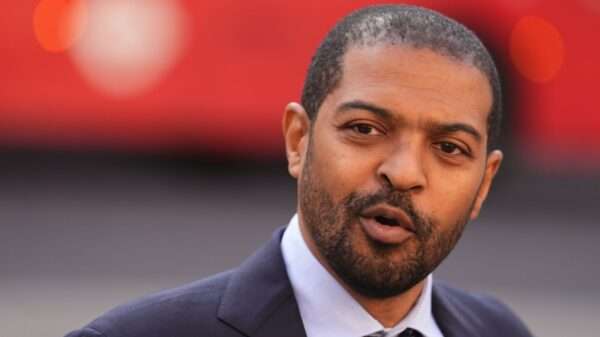As the effects of climate change become increasingly evident, scientists are urging the public to participate in an important conservation effort: counting butterflies. With just one week left in the spotting season, experts emphasize the urgency of this initiative. This call to action comes amid alarming reports that many butterfly species are migrating further north, driven by the changing climate.
Butterflies, with their delicate beauty and ecological significance, are essential indicators of environmental health. Their presence, abundance, and diversity offer vital clues about the state of our natural world. However, climate change poses a severe threat to these insects. Rising temperatures, altered precipitation patterns, and habitat loss are pushing many species beyond their traditional ranges. This northward migration disrupts ecosystems, as butterflies struggle to find suitable habitats and plants for feeding and breeding.
The annual butterfly count is more than a simple observational activity. It is a critical citizen science project that gathers data to track changes in butterfly populations over time. This information helps scientists understand the impacts of climate change on biodiversity and develop strategies to mitigate these effects. By participating, individuals contribute to a larger effort to conserve these pollinators and the ecosystems they support.
Recent studies have shown that many butterfly species, particularly those in temperate regions, are increasingly moving northward. This shift not only threatens the butterflies but also affects the plants and animals that rely on them. For example, butterflies play a crucial role in pollinating wildflowers. Their decline can lead to reduced plant diversity, which in turn impacts other insects, birds, and mammals that depend on these plants for food and shelter.
Moreover, the movement of butterflies into new areas can lead to ecological imbalances. In their new habitats, butterflies may face competition from local species, and their interactions with new predators and diseases can further complicate their survival. These cascading effects highlight the interconnectedness of ecosystems and the broad impact of climate change.
The public’s involvement in counting butterflies is vital. Each sighting, whether of a common species or a rare one, adds valuable data to the scientific record. Participants are encouraged to observe butterflies in their local gardens, parks, and nature reserves, noting the species and numbers they see. This data collection is simple yet powerful, providing a comprehensive snapshot of butterfly populations across different regions.
As the spotting season draws to a close, the urgency of the count cannot be overstated. Every observation counts, offering insights that can inform conservation efforts and policy decisions. By taking part in this initiative, the public can play an active role in addressing the climate crisis and protecting our natural heritage.
In these critical times, counting butterflies is more than a pastime; it is a step towards safeguarding our environment. The combined efforts of individuals across the country can help scientists piece together the complex puzzle of climate change and its impacts on biodiversity. As we face the reality of a warming world, the simple act of observing and recording butterflies becomes a beacon of hope and a testament to the power of collective action.















































